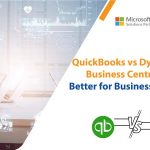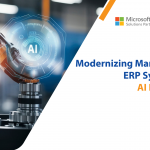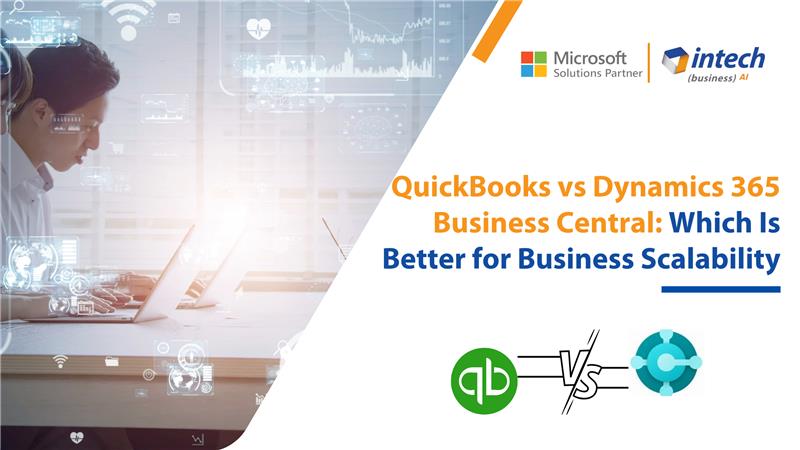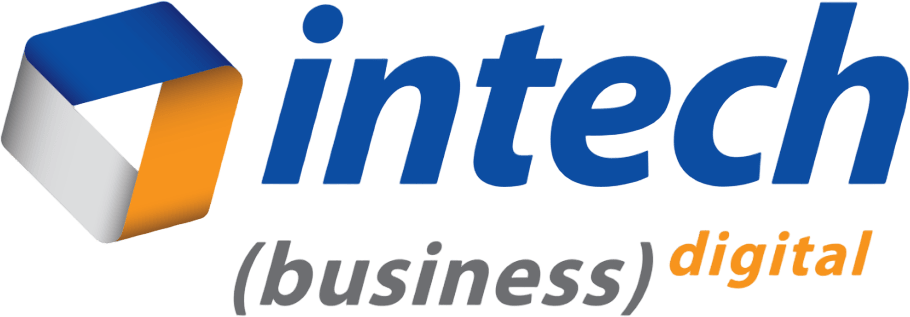Advancing Manufacturing Operations With Microsoft Fabric: A CIO’s Perspective
Did you know that the US manufacturing sector is worth $1.7 trillion, making it one of the largest economic sectors in the world? The manufacturing industry is a key part of the global supply chain and accounts for almost a third of worldwide trade. In a world where technological innovations are driving businesses to unprecedented heights, it becomes imperative to leverage the right tools and technologies to stay ahead of the curve. However, complex supply chains, disjointed data systems and operational inefficiencies are slowing down progress for manufacturers. CIOs are tackling complex data with outdated management systems while dealing with the constant pressure to innovate without overwhelming their organizations. What if there was a solution to bring all these moving parts together seamlessly?
The answer lies in Microsoft Fabric. Microsoft Fabric offers advanced data integration capabilities and manufacturing analytics, helping CIOs unlock actionable insights, advance manufacturing operations, and drive digital transformation.
What Is Microsoft Fabric?
In today’s data-driven world, businesses must be able to collect, analyze, and use data effectively. Microsoft Fabric is a robust AI-powered SaaS (Software as a Service) platform for data and analytics that facilitates the integration, management, and analysis of various data sources.
Microsoft offers various tools for data analytics and modern data management, including Azure Data Factory, Azure Synapse Analytics, Business Intelligence, Synapse Real Time Analytics, and many more. Microsoft Fabric simply brings these different tools together under the same umbrella, offering customers better insights and greater value. Fabric eliminates data silos, simplifies IT infrastructure, and reduces overhead costs.
Key Features of Microsoft Fabric
Now that we understand what Microsoft Fabric is, let’s take a look at some of its key features:
Unified Analytics Platform:
Microsoft Fabric combines data and analytics capabilities from multiple data sources into a single platform, eliminating the need for multiple services from different vendors.
OneLake:
If you have used OneDrive, you know how it makes it easy for you to store files, whether you want to store documents, images, or videos. It is an extensive platform for all your storage needs. OneLake works on the same principle. It simplifies data management by providing a single location for all manufacturing analytics data, regardless of its format or source.
AI Integration:
Microsoft Fabric is equipped with AI-powered capabilities that automate tasks and provide intelligent suggestions for informed decision-making. Fabric leverages Azure AI Foundry for advanced AI and machine learning capabilities.
Role-Specific Workloads:
Microsoft Fabric also provides customized solutions for diverse roles within an organization, so each user has the required tools at their disposal.
Seamless Integration with Microsoft 365:
One of the key benefits of employing tools within the Microsoft ecosystem is that they integrate with each other effortlessly. Microsoft Fabric works well with Microsoft 365 tools, improving collaboration amongst team members and boosting overall productivity.
How Do Manufacturers Benefit From Microsoft Fabric?
As one of the largest economic sectors in the world, it is no surprise that manufacturing is one of the most data-intensive industries, generating close to 1.9 petabytes of data each year. Managing such vast amounts of data can be no easy task, but Microsoft Fabric makes it easy and effortless, like a walk in the park. Fabric serves as a fishing net, helping manufacturers capture the right insights from the vast ocean of data before them, making the jobs of CIOs much easier.
Fabric powered by KQL provides real-time engineering capabilities, helping CIOs respond to dynamic market conditions with utmost ease. Moreover, its advanced BI features help create interactive dashboards, extract actionable insights and drive decision-making for all stakeholders involved.
Key Manufacturing Data Processed by Microsoft Fabric
- Production Metrics: Fabric aids in modern data management by bringing together data on production efficiency, yield percentages, and equipment downtime.
- Quality Assurance Insights: Tackles breakdown, test outcomes, and customer feedback regarding quality.
- Inventory Statistics: Tracks stock levels, production shortages, and lead generation.
- Supply Chain Metrics: Evaluates vendor reliability, logistics performance, and transportation costs.
- Maintenance Forecasting: Focuses on equipment failure trends and maintenance records to aid in proactive care.
Overcoming Manufacturing Challenges with Microsoft Fabric
Production lines are at the heart of manufacturing, but they face harsh realities that can impact efficiency, compromise quality, and eat away at your profitability. As a CIO, you have to navigate a landscape of fluctuating customer demands and supply chain management and add to that the pressure of rapid technological evolution. As we have already seen, Microsoft Fabric can help you battle these challenges so you can come out stronger on the other side. Let’s dive deeper into how it achieves this:
Improve Overall Equipment Effectiveness (OEE):
Fabric uses AI and Machine Learning capabilities to track equipment performance, track anomalies ahead of time, schedule predictive maintenance to avoid unplanned downtime, maximize energy consumption, and analyze previous data to identify bottlenecks to avoid disruptions in the production schedule. In addition, Fabric helps with process automation and resource allocation.
Accelerate Digital Transformation:
Fabric offers an extensive, scalable and consolidated data platform, bringing in data from various sources in one place. Moreover, with its cloud infrastructure, advanced collaboration capabilities, and seamless integration with existing systems, Fabric enables manufacturers to avoid any disruptions, cut on infrastructure costs and maximize value.
Bridge the Legacy Gap:
Fabric uses a combination of data connectors, APIs, and ETL/ELT processes to integrate data from your legacy system into a modern cloud-based, AI-powered scalable platform. Fabric also monitors the performance of the legacy system and generates predictive insights to help CIOs prioritize modernization efforts. What’s more, it also allows hybrid integrations, where legacy and modern systems coexist during the transition process, helping manufacturers avoid any disruptions.
Mitigate Rising Costs of Labor and Enable Regulatory Compliance:
Microsoft Fabric aids leaders in tracking regulatory compliance and enhancing supplier management by harnessing data-driven insights. It also provides predictive analytics to mitigate risks and reduce labor costs through process automation and workforce optimization.
For CIOs in the manufacturing industry, the challenge isn’t just about keeping the machines running; it is about orchestrating a symphony of data, people, and processes to achieve lasting success. Microsoft Fabric offers the perfect partner in this journey—helping you transform raw data into actionable insights, driving smarter decisions. But technology is only part of the equation. At its core, manufacturing is about people—empowering teams, promoting collaboration, and driving innovation. With Fabric, you are not just building efficient workflows; you are creating a future-ready, resilient business where technology and human ingenuity work hand in hand.
Ready to start but don’t know how to?
We have got your back.
Discover more about the backbone of Microsoft Fabric. Read the blog here.
Explore our 2-week Fabric Implementation offer. Sign up here.
Or, book a 1:1 consultation with us to explore use cases best suited to your business requirements: Click here.
FAQs
Is Microsoft Fabric suitable for small and medium-sized manufacturers?
Yes. Microsoft Fabric is designed as a scalable SaaS platform, making it ideal for SMBs. It consolidates data from multiple sources into one unified platform, reducing infrastructure costs and complexity while providing advanced analytics and AI capabilities.
Do I need to replace my existing ERP or legacy systems to use Microsoft Fabric?
No. Microsoft Fabric supports hybrid integration. It uses data connectors, APIs, and ETL/ELT processes to integrate data from legacy systems into its modern cloud-based platform. This allows manufacturers to modernize gradually without disrupting operations.
Can Microsoft Fabric help improve equipment efficiency and reduce downtime?
Yes. Microsoft Fabric leverages AI and machine learning to monitor equipment performance, predict failures, and schedule proactive maintenance. This helps manufacturers improve Overall Equipment Effectiveness (OEE) and avoid costly unplanned downtime.
Does Microsoft Fabric simplify compliance and supply chain management?
Yes. Microsoft Fabric provides predictive analytics and real-time dashboards to track regulatory compliance, supplier performance, and logistics metrics. This helps manufacturers mitigate risks, optimize processes, and maintain compliance effortlessly.
How does Microsoft Fabric accelerate digital transformation for manufacturers?
By offering a unified, AI-powered data platform. Microsoft Fabric consolidates data from multiple sources, integrates seamlessly with Microsoft 365, and provides advanced BI tools for actionable insights. This enables manufacturers to streamline operations, cut costs, and drive innovation without overwhelming their IT teams.
Recent Post





How can we help? - Talk to Dynamics 365 experts for your concerns
What's New

QuickBooks vs Dynamics 365 Business Central: Which Is Better for Business Scalability
Introduction Today’s needs vs tomorrow’s growth. A battle, organizations, small and big, fight daily. The...

Modernizing Manufacturing ERP Systems with AI Intelligence
A success story on transforming manufacturing operations, productivity, and decision-making at scale Manufacturing ERP transformation...

How JK Fenner Modernized Dealer Management with Microsoft Dynamics 365
Manufacturers with large dealer networks know the struggle well. Keeping hundreds of dealers connected, informed,...



